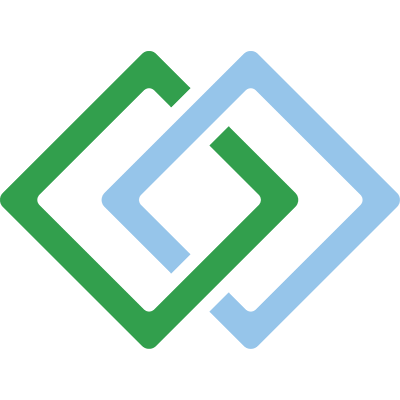
@ShahidNShah


Think about a future where medical breakthroughs aren’t just discovered—they’re anticipated. That future is getting closer, thanks to the power of cognitive insights. IQ isn’t just a measure of individual intelligence anymore—it’s becoming a game-changer in how we innovate and improve healthcare.
So, how does IQ really influence progress in medicine? By understanding how people think, learn, and solve problems, researchers and developers can create more personalized and effective solutions. These insights are helping shape everything from faster diagnoses to smarter treatments.
And the best part? This isn’t just about making healthcare more high-tech—it’s about making it more human. More tailored, more responsive, and more effective. Let’s take a closer look at how cognitive insights are helping build a healthier future for all of us.
Intelligence, particularly IQ, plays a vital role in advancing healthcare innovation. Higher cognitive abilities not only enhance understanding in medical fields but also contribute to creative problem-solving and the effectiveness of diverse healthcare teams.
Cognitive abilities are fundamental in assessing how individuals process medical information and make decisions. In healthcare, IQ helps determine how efficiently medical professionals can learn and apply complex concepts.
This understanding impacts patient care, diagnostics, and treatment planning. By exploring what IQ is—a measure of cognitive abilities—you can see how it quantifies mental capabilities and highlights potential areas where cognitive skills can be leveraged for innovations in medical science and practice.
IQ influences creativity and problem-solving, crucial for innovation in medicine. Higher IQ often correlates with enhanced critical thinking and the ability to see unique solutions.
In medical settings, this means developing new treatment methods, better diagnostics, and innovative approaches to medical challenges. Creative thinking driven by cognitive strengths can lead to breakthroughs, such as more effective therapies and advanced medical technologies, enhancing overall patient outcomes.
Cognitive diversity within healthcare teams leads to innovation by combining varied perspectives and skills. Teams with diverse IQ levels are better at tackling complex medical problems because they benefit from different viewpoints and expertise.
This diversity encourages dynamic team interactions and fosters an environment where innovative ideas flourish. By embracing varied cognitive abilities, healthcare organizations can push the boundaries of medical innovation and improve collaborative efforts to solve intricate medical issues.
Advancements in medical technology are increasingly driven by the interplay between cognitive insights and cutting-edge innovation. By leveraging the power of human and artificial intelligence, these innovations are transforming data into actionable solutions and paving the way for more personalized healthcare.
Incorporating artificial intelligence (AI) in healthcare sharpens the capabilities of human intelligence. AI algorithms analyze vast datasets, detecting patterns and predicting potential health outcomes. Doctors and researchers employ AI tools to diagnose diseases faster and with greater accuracy.
For instance, AI-powered imaging software can highlight anomalies in medical scans that a human eye might miss. This collaboration between human and machine fosters a streamlined diagnostic process, leading to timely interventions. By reducing human error and enhancing decision-making, AI complements the expertise of healthcare professionals.
Data is at the heart of modern clinical practice. By collecting and analyzing patient data, healthcare providers create evidence-based treatment plans that are precise and adaptive. It’s more than just numbers; it’s about tailoring care to suit individual needs.
Clinicians leverage cognitive analytics to monitor patient progress, predict complications, and refine therapeutic approaches. Decision support systems alert practitioners to potential issues, encouraging proactive care. Through data-driven insights, clinicians can improve patient outcomes and reduce healthcare costs.
Cognitive analytics pave the way for personalized medicine by interpreting complex biological and genetic data. Each patient is unique, and so should be their treatment. In personalized medicine, therapies are tailored according to an individual’s specific genetic makeup and lifestyle factors.
By evaluating vast datasets, cognitive analytics identify the most effective interventions for each patient, from medications to lifestyle changes. This precision approach minimizes trial-and-error, enhancing treatment effectiveness. Patients benefit from customized care plans that optimize their health journey. Personalized medicine empowers you with treatments that are as unique as your genetic blueprint and life story.
As healthcare evolves, cognitive skills are becoming essential in medical education, innovation, and achieving health equity. This section explores new directions in nurturing talent, fostering creative solutions, and addressing disparities in healthcare.
In modern medical education, cognitive skills are crucial for developing future healthcare professionals. Critical thinking and problem-solving enable you to navigate complex medical situations effectively. With these skills, you can diagnose accurately, devise treatment plans, and improve patient outcomes.
Educators are integrating advanced cognitive training into curricula. Techniques such as simulation-based learning, case-based learning, and reflective practice are gaining traction. These methods help you adapt quickly to advancements and technologies such as AI and telemedicine, facilitating better decision-making in your day-to-day practice.
Innovation in healthcare thrives when cognitive abilities are nurtured. Developing creative thinking and adaptability can lead to breakthroughs in treatment and care. By focusing on enhancing these cognitive traits, you can contribute to innovative ideas that make healthcare more efficient and accessible.
Training programs now emphasize collaborative problem-solving and inventive thinking. Workshops, hackathons, and interdisciplinary projects invite you to explore new approaches to care. Encouraging experimental mindsets, these initiatives aim to cultivate skills that drive practical solutions in tackling healthcare challenges.
Achieving health equity requires bridging cognitive gaps across diverse populations. By understanding different cognitive backgrounds, you can tailor healthcare strategies to meet the needs of underserved communities. Recognizing these differences supports inclusive care that respects and adapts to varied experiences.
Efforts to address cognitive disparities could include community-based education programs and culturally sensitive communication strategies. You have a role in fostering environments where all patients feel understood and valued. Prioritizing these strategies contributes to more equitable healthcare solutions and outcomes for everyone, regardless of background.
The future of healthcare isn’t just about new technologies—it’s about the minds behind them. Cognitive insights, from individual IQ to team-wide diversity in thinking, are driving smarter, more personalized, and more equitable care.
By combining human intelligence with innovative tools like AI and data analytics, healthcare is becoming faster, more precise, and more responsive to real-world needs.
As we train the next generation of medical professionals and embrace cognitive diversity, we open the door to breakthroughs that benefit everyone. The smarter we think, the better we heal—and the more prepared we are for the future of care.

Chief Editor - Medigy & HealthcareGuys.
Heart failure—a chronic, progressive condition in which the heart cannot pump enough blood to meet the body’s needs—remains a global health challenge affecting millions. Over recent decades, …
Posted Jun 25, 2025 Biomedical Technology Cardiology Emergency Medicine
Connecting innovation decision makers to authoritative information, institutions, people and insights.
Medigy accurately delivers healthcare and technology information, news and insight from around the world.
Medigy surfaces the world's best crowdsourced health tech offerings with social interactions and peer reviews.
© 2026 Netspective Foundation, Inc. All Rights Reserved.
Built on Feb 19, 2026 at 4:05am